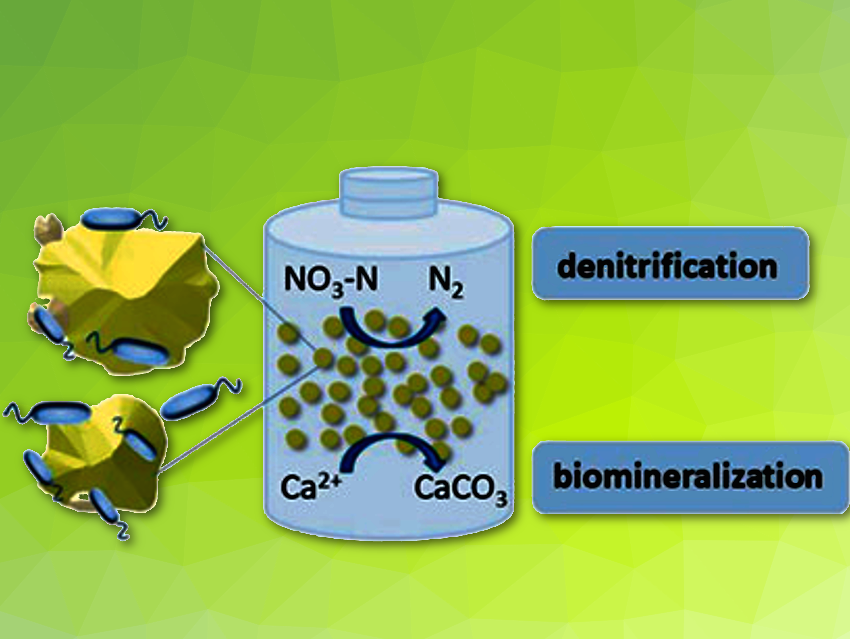Nitrate contamination in drinking water can cause severe health problems in humans such as gastric problems and cancer. Ions causing water hardness can lead to scale depositions and be harmful to pipes and other equipment. The currently used (physico)-chemical removal methods such as reverse osmosis or electrodialysis require special conditions and may create other pollutants. Therefore, biological methods provide an environmentally friendly and cost-effective alternative.
Jungfeng Su, Xi’an University of Architecture and Technology, China, and colleagues have tested combinations of multiple strains of Pseudomonas sp. to simultaneously remove nitrates and hardness ions from wastewater. The microorganisms were immobilized inside a bioreactor on porous ceramsite carriers that allow high metabolic activity and long cell retention times.
The experiments showed that a high concentration of sodium succinate as organic nutrient and a slightly above neutral pH are beneficial for the growth of the bacteria. Additionally, a relatively long retention time in the reactor is required for efficient nitrate and hardness removal. The calcium-based sedimentations occurring during the reaction indicate that the bacteria convert the carbonate ions in the water. Decreasing nitrite concentrations after an initial spike suggest that the denitrification process occurs continually. Under optimized conditions, the combination of Pseudomonas sp. H17 and H2 allow a nitrate removal rate of over 99 % with a simultaneous hardness removal efficiency of over 67 %.
- Performance and Microbial Community of Simultaneous Denitrification and Biomineralization in Bioreactors,
Junfeng Su, Yihan Bai, Tinglin Huang, Yichou Gao, Li Wei, Jinsuo Lu,
Chem. Eng. Technol. 2019.
https://doi.org/10.1002/ceat.201800310




